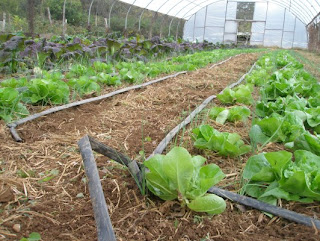Top 10 Green Travel Tips- Most courtesy of www.travelchannel.com
1. Go biking.
Reduce your carbon footprint and participate in earth-friendly transportation
options like biking, walking, and taking public transit. These alternatives are
often cheaper than taking a cab or renting a car.
2. Reuse bottles.
A plastic bottle often travels thousands of miles before you buy it, so carry a
reusable container or drink locally sourced water when you’re on the go.
3. Fly non-stop.
A significant percentage of a plane’s carbon emissions come from takeoff and
landing, so book non-stop flights whenever possible.
4. Eat and buy local. Wherever you travel, buy local products instead of items that have been
flown or shipped from overseas. However, avoid products made from endangered
animals or plants. In most cases, you can’t get them through customs anyway. Eating
locally is one of the best ways to support a community. Try to shop at farmers’
markets and dine at restaurants with locally sourced ingredients.
5. Work the land.
Stay at a working farm that also functions as an inn. This unique experience
helps travelers connect with an area’s agricultural heritage—and usually costs
less than a hotel.
6. Recycle. Don’t
let your good recycling habits stop just because you’re on vacation. Ask about
your hotel’s recycling program, and sort your trash accordingly. If your hotel
doesn’t recycle, consider taking your empty bottles or other materials home and
recycling them there.
7. Stay on the trail! Don’t veer off marked trails when hiking, and maintain a safe distance
from any animals you encounter. Deposit your trash in marked receptacles or
take it with you when you leave. Light campfires only in areas where permitted,
and be sure they’re completely out before you leave.
8. Try a hybrid.
When renting a car for travel, choose the smallest vehicle or a hybrid. Decline
any “free” upgrades that can cost you more in gas. Consider renting an economy
car if your personal vehicle is a large gass-guzzler—you’ll save gas and avoid
putting miles on your own vehicle.
9. Stay at green hotels. Did you know Las Vegas is at the forefront of green building? The
Palazzo Hotel Vegas is one of the largest hotels in the U.S. to receive LEED
certification—95 percent of its structural steel and 26 percent of its concrete
is recycled material. Pools are heated by solar power, and the hotel claims to
save enough energy annually to light a 100-watt bulb for more than 12,000
years!
10. Watch your speed. Gas mileage usually decreases rapidly at speeds above 60 mph. For
each 5 mph you drive over 60, assume you’ll pay an additional $0.31 per gallon
for gas.
For more information,
check out the following websites:
Basic tips and suggestions:
Green hotels:
Ecotourism/working farms:






